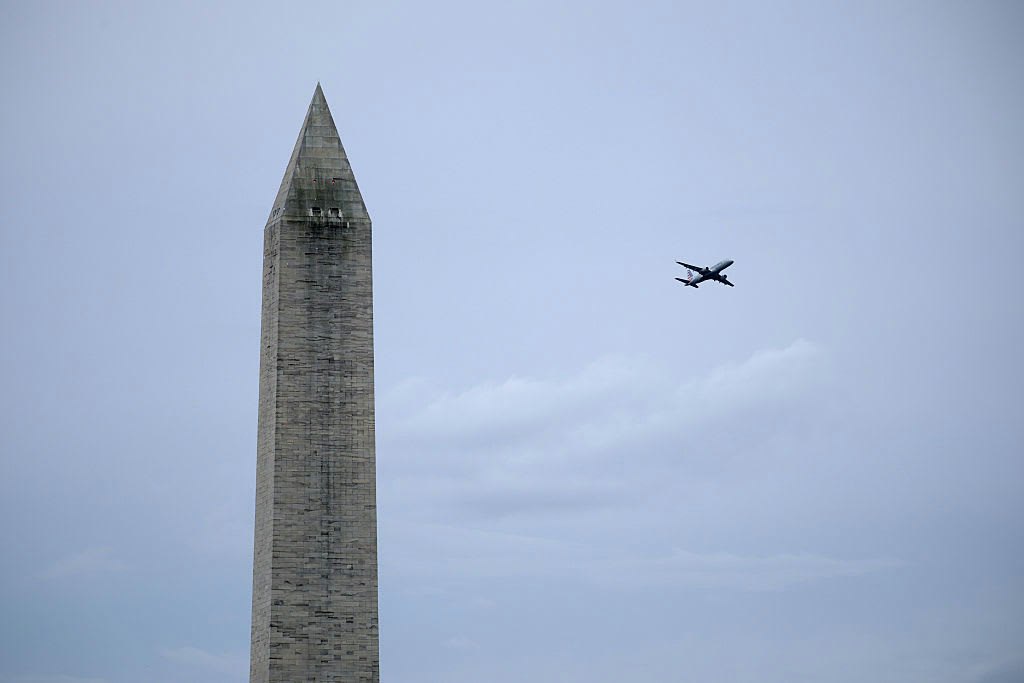JetBlue to require passenger masks. Should all airlines do the same?
A union for flight attendants is calling on the federal government to require everyone who flies — including airline crew members and passengers — to wear face masks in order to protect vulnerable airline employees and stop the spread of the coronavirus.
Major airlines including legacy carrier United and wallet-friendly carrier Frontier, both members of the Association of Flight Attendants (AFA), already require flight attendants to wear protective face masks or coverings when on-duty. American and Delta recently announced similar mandates. But none extend to airlines' customers. Only JetBlue, as of Monday, requires both crew members and customers to wear face coverings during travel. It is the first airline in the U.S. to announce such a policy, which will go into effect May 4 — and could help usher in a new era of flying etiquette.
Canada also requires all passengers to wear face coverings, and Malaysia Airlines is enforcing a policy where passengers bring and wear their own protective masks upon checking-in for flights through to baggage collection.
It would be prudent — and easy — for more airlines in the U.S. to require that their passengers wear face masks, according to physician and certified air-transport pilot Peter Tippett, also the CEO of CareMesh, a national directory that allows health care providers to communicate with one another.
"Passengers wearing masks would absolutely make life safer for everyone. If you as an airline could only do one thing — between passengers wearing masks and flight attendants wearing masks — passengers wearing masks would win in terms of reducing risk for everyone," Dr. Tippett told CBS MoneyWatch.
The coronavirus is most commonly transmitted through respiratory droplets expelled when an infected person speaks, coughs or sneezes. The Centers for Disease Control and Prevention advises that mask-wearing helps prevent the spread of the virus, particularly when social distancing is not possible, as is the case in tightly-packed aircraft cabins. Airplane passengers in close proximity risk infecting one another even though, generally speaking, airplanes are equipped with hospital-grade air filters that recirculate air every two to four minutes.
Mandating that passengers wear masks aboard flights would be the single most effective policy airlines could implement now to ensure both customer and crew-member safety, according to Tippett.
Aircraft are relatively dry atmospheres, meaning the coronavirus won't live long on its surfaces. But passengers and crew members risk infecting each other — and face masks help prevent that.
"First, masks stop you from touching your nose or mouth, and those are the number one and two ways people get coronavirus," Tippett said.
"A mask also stops water particles — even a rin-tin-tin mask stops those, which are much more likely to infect you than dry virus particles," he added.
If it's such a no-brainer, why aren't airlines making masks a requirement for boarding, or better yet, handing them out to passengers, like they do ear phones and motion sickness bags? (JetBlue has not indicated it will provide face masks, instead sharing CDC guidance on suitable face coverings with customers.)
For one, it could increase the number of altercations between crew members and passengers, Tippett said.
"What would you do if someone were to come on board and take their mask off? Passengers nearby could freak out and you could imagine bad things happening," Tippett said.
"Flight attendants have enough fights to worry about with seat backs and things, I can imagine that's part of the problem with imposing a rule," he added.
But mask requirements could also ease leery travelers' concerns about flying and help boost battered airlines' revenues as stay-at-home orders and business-travel restrictions begin to ease.
Major U.S. airlines report that even after slashing departures, remaining flights are, on average, just 15% full. Filling seats is critical to airlines' profitability: They don't typically make money unless they're more than 66% full, according to CBS News correspondent Kris Van Cleave. Airlines are flying smaller aircraft on virtually all routes and have cut capacity by up to 90% to cope with a roughly 97% slide in customer demand for flights, he noted.
One former flight attendant tweeted that she "wouldn't step foot on a plane as an employee unless every passenger boarding the flight did so in a mask."
"An airplane where social distancing is nearly impossible should require everyone on the plane to wear a mask, especially the crew," another reluctant traveler tweeted.



